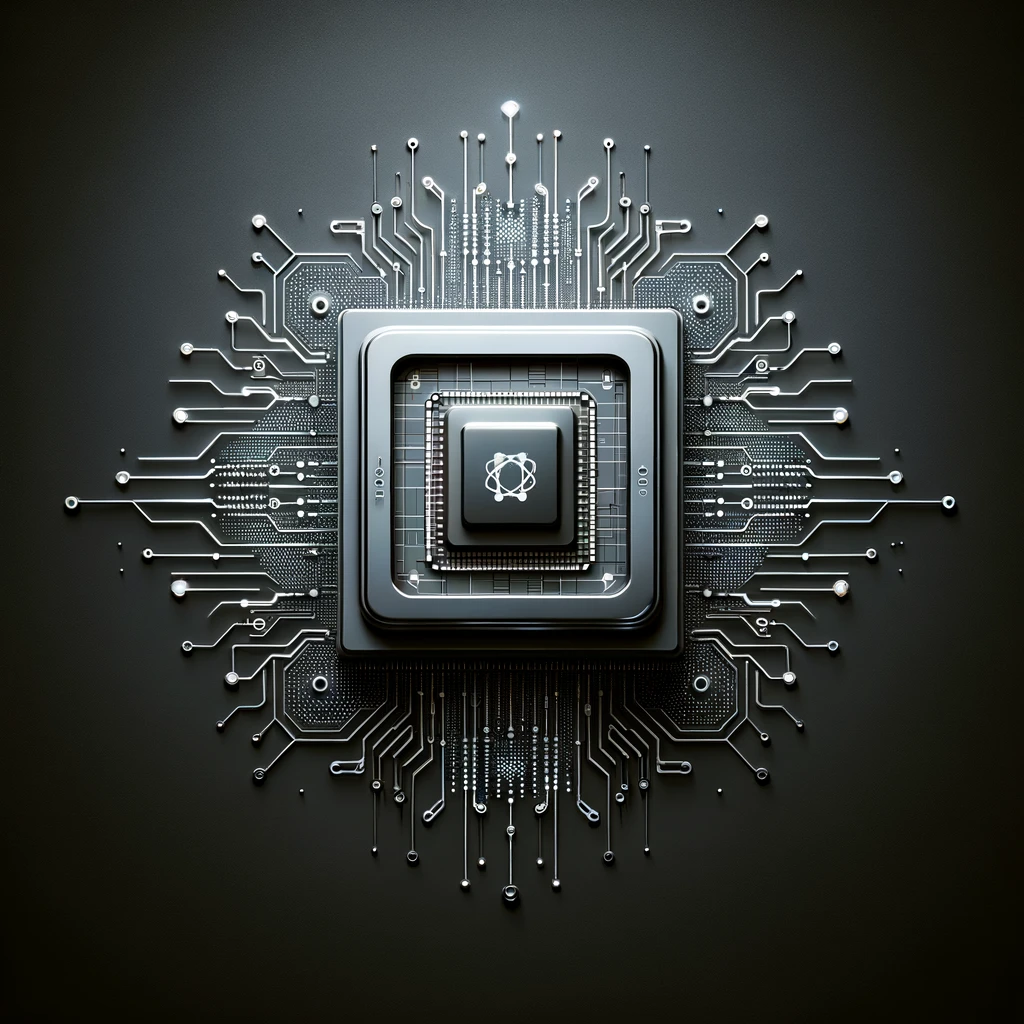Quantum circuits They may sound like something out of a science fiction movie, but I firmly believe they are the next big revolution in technology.
As a technology enthusiast, I'm excited about the potential that combining quantum computing and artificial intelligence (AI) brings.
This merger promises to transform everything from cryptography to drug discovery, and I can't wait to see how it plays out in the coming years.
Browse the content

What Are Quantum Circuits?
Before we dive into the interaction between AI and quantum circuits, it's important to understand what these circuits are.
In simple terms, a quantum circuit is a sequence of quantum operations performed on qubits (the basic units of information in quantum computing).
Unlike classical bits, which can be 0 or 1, qubits can exist in multiple states at the same time thanks to the phenomenon of superposition.
Structure of a Quantum Circuit
- Qubits: The basic processing units.
- Quantum Gates: Operations that change the state of qubits.
- Measurements: Reading the final state of the qubits after executing the circuit.
Applications of Quantum Circuits
- Factoring Large Numbers: Crucial for breaking certain types of encryption.
- Molecule Simulation: Important for discovering new medicines and materials.
- Optimization: Solving complex problems faster than classical computers.
The Role of AI in Generating Quantum Circuits
Developing efficient quantum circuits is an extremely complex task. This is where AI comes into the picture.
Using advanced algorithms, AI can help create and optimize quantum circuits more efficiently than would be possible manually.
How AI Generates Quantum Circuits?
- Machine Learning: Machine learning algorithms can analyze large amounts of data and identify patterns that are difficult for humans to notice.
- Genetic Algorithms: Inspired by natural evolution, these algorithms can “evolve” quantum circuits, selecting and combining the best designs.
- Neural networks: They can be trained to predict the effectiveness of certain quantum circuits, speeding up the development process.
Benefits of AI Circuit Generation
- Efficiency: AI can create circuits faster and with greater precision.
- Optimization: AI algorithms can optimize circuits to use fewer quantum resources such as qubits and gates.
- Exploration: AI can explore a larger design space and discover innovative solutions that humans might not consider.
Examples of Practical Applications
Google and Quantum Supremacy
Google made headlines in 2019 when it announced that it had achieved “quantum supremacy” with its Sycamore processor.
Using advanced AI techniques to develop their quantum circuits, the Google team was able to perform a computational task in seconds that would have taken a classical supercomputer thousands of years.
IBM and Qiskit
IBM is at the forefront of quantum computing with its Qiskit platform.
They have invested heavily in using AI to improve the efficiency and robustness of their quantum circuits.
With Qiskit, developers can use AI tools to create optimized quantum circuits in an affordable and efficient way.
Challenges and Future
Although the combination of AI and quantum computing is promising, there are still many challenges to be overcome.
Qubit precision, noise reduction and circuit scalability are crucial issues that need to be resolved.
Accuracy and Noise
Qubits are extremely sensitive and susceptible to external interference, which can introduce errors into calculations.
AI algorithms can help develop more effective error correction methods, but this is an ongoing area of research.
Scalability
Developing quantum circuits that can scale to a larger number of qubits without losing efficiency is a significant challenge.
AI can help identify circuit architectures that are more easily scalable.
Integration with Classical Computing
Another promising area is the integration of quantum circuits with classical systems.
AI can play a crucial role in creating hybrid algorithms that use the best of both worlds to solve complex problems.
How You Can Get Involved
If you're excited about the potential of quantum computing and want to get involved, there are several ways to get started:
- Education: There are many free and paid online courses on quantum computing and AI. Platforms like Coursera, edX, and Khan Academy offer valuable resources.
- Development Tools: Try tools like IBM's Qiskit or Google's Cirq. These platforms offer affordable development environments for creating and testing quantum circuits.
- Community: Participate in online communities such as forums and discussion groups on Reddit, Stack Overflow, and other platforms. Sharing knowledge and experiences with other enthusiasts can be very enriching.
The Future is Quantum and Smart
The generation of quantum circuits by AI is not just a trend, but a necessity to advance quantum computing.
By combining the power of AI with the promise of quantum computing, we are one step closer to solving some of humanity's most complex and challenging problems.
Imagine the Potential
- Personalized Medicine: Simulations of complex molecules can lead to the discovery of new medicines tailored to specific individuals.
- Climate and Environment: More accurate climate models can help predict and mitigate the impacts of climate change.
- Artificial intelligence: AI itself can benefit from quantum computing, leading to even greater advances in machine learning and data processing.
Conclusion
AI-generated quantum circuits are an exciting fusion of two of the most advanced areas of technology.
For technology enthusiasts, this is a field to watch closely.
With significant challenges ahead but also incredible potential, the interplay between AI and quantum computing promises to redefine what is possible in the world of technology.
If you're looking for the next big technology revolution to follow, look no further.
Quantum computing, powered by artificial intelligence, is poised to transform the future in ways we are still only beginning to understand. It's time to prepare for a quantum and intelligent future!







